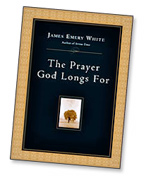Posted: 8/04/06
Churches of Christ, Baptists
branch off same family tree
By Ted Parks
Associated Baptist Press
LOUISVILLE, Ky. (ABP)—Some Baptists may remember hearing their Church of Christ neighbors called “Campbellites.” And most Baptists know Churches of Christ are strictly a cappella, preferring unaccompanied singing to pianos, organs or any other instrument. They may not know the group has Baptists in its family tree.
But Baptists, with their well-known history of discord, might be even more surprised to learn that the non-instrumental Churches of Christ and the pro-instrumental Christian Churches met peaceably this summer for the first time in 100 years.
Christian Church leaders invited members of a cappella Churches of Christ to join them in Louisville, Ky., for their annual meeting, the North American Christian Convention. With the theme “Together in Christ,” the 2006 NACC focused on unity between the two fellowships.
"Let’s wage unity. Let’s no longer be known for what we’re against."
–Rick Atchley, preaching minister, Richland Hills Church of Christ
|
Both non-instrumental Churches of Christ and their instrumental counterparts, Christian Churches/Churches of Christ, trace their history to 19th-century religious reformer Alexander Campbell. A third group, the Christian Church (Disciples of Christ), shares the same roots.
A cappella Churches of Christ have remained separate from instrumental Christian Churches for more than 100 years. Their differences are based on divergent interpretations of scriptural references to musical instruments. Churches of Christ cite Ephesians 5:19 and Colossians 3:16 as authorizing only vocal music, and they consider instruments as an unwarranted addition to the scriptural mandate to sing “in your hearts.”
In the Louisville meeting, convention speakers from both Churches of Christ and Christian Churches said it is time for members from the two traditions to quit quibbling and start cooperating.
“I would characterize our two fellowships as being on target doctrinally, but lacking in the areas of service and unity,” said Dave Stone, senior minister of Southeast Christian Church, a Louisville megachurch. “We’ve each been quite proud of our doctrinal stance in the truth area. It’s the love area where we tend to struggle. We can leave our petty differences behind us.”
Rick Atchley, preaching minister of Richland Hills Church of Christ in North Richland Hills, reminded the convention of the increased potential for witness and mission that unity brings.
Satan “knows that a divided church cannot reach a fractured world,” Atchley said, adding, “unity is an incredibly powerful apologetic.”
Atchley listed several joint projects between Churches of Christ and Christian Churches, including church plants, Hurricane Katrina relief and mission work in Africa. He recalled preaching under mango trees in the African nation of Zambia to an audience ravaged with AIDS.
“I don’t care if you want to sing with or without a guitar, just come stand under that tree and help me tell those people about Jesus,” he remembered thinking.
“Let’s wage unity,” he told the convention. “Let’s no longer be known for what we’re against.”
The combined convention worship services included both a cappella and instrumental music. The guitars, drums, trumpets and other instruments on stage accompanied some songs but remained silent on others. At times, the instruments would stop in the middle of a song so the audience could sing part of it unaccompanied.
With Churches of Christ traditionally strong in the South, particularly Tennessee and Texas, Baptists have often brushed up against their religious neighbors’ a cappella stance as the two groups vied for members. But believers in both camps may not realize the beliefs, practices, and even history they share.
Church historian Bill Leonard, dean of Wake Forest University Divinity School in Winston-Salem, N.C., pointed to the close ties between Alexander Campbell and Baptists on the early 19th-century American frontier. At one time, the Brush Run Church, where Campbell preached, was a member of the Redstone Baptist Association in Pennsylvania.
Though Campbell and the Baptists eventually parted ways, the reformer’s followers and frontier Baptist leaders shared key theological concepts. For example, Campbell sought to restore what he believed to be the simple worship and organization of the primitive church, whose practices had been corrupted by human dogmas.
Similarly, Leonard explained, “Landmark” Baptists extolled the virtues of the “true church,” which they identified with their own tradition. In the revivalistic fervor of the frontier, the two groups competed for members, each one trying to convince would-be converts that it alone bore the marks of Christ’s authentic followers.
Leonard said Baptists and churches tracing their origins to Campbell still share common ground. For example, both traditions practice baptism by immersion and cherish congregational autonomy.
While leaders from Churches of Christ and Christian Churches at the Louisville meeting hope for improved relations as a result of this year’s convention, they admit hard work lies ahead as they attempt to strengthen ties.
“I don’t think you will see many mergers of Christian Churches and Churches of Christ. I do think you will see much more cooperation in ministry—church planting, missions, benevolence, Christian education,” Atchley said.
“For the most part, we will still meet in our separate congregations on Sunday. But I think we will start meeting together a lot more on Monday in the street to serve in Jesus’ name.” News of religion, faith, missions, Bible study and Christian ministry among Texas Baptist churches, in the BGCT, the Southern Baptist Convention ( SBC ) and around the world.



